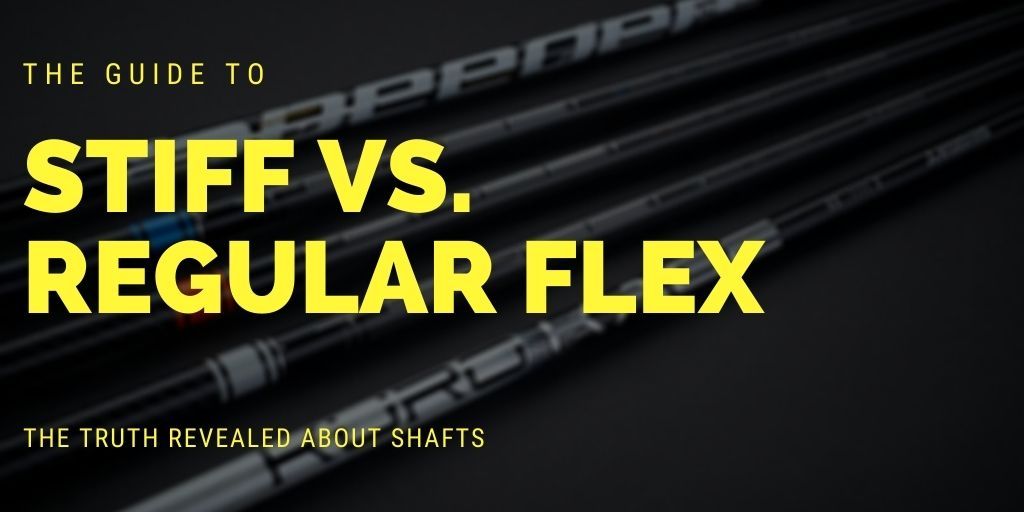
The golf shaft industry is filled with myths and misinformation. One of the most popular decisions golfers face is whether to get a regular or stiff shaft in their irons, hybrids, fairway woods, and driver.
Most resources will tell you to make that decision based on your swing speed. Unfortunately, they are wrong. There's a lot more that goes into deciding between regular and stiff shaft. In this article, I'll clear up some basics for you, but more importantly, tell you the truth.
There Are No Standards for Flex
There is a lot of misinformation amongst golfers (and companies) regarding flex. The most important thing to understand is that there are no standards when it comes to shaft flex. One company's "regular" could be another company's "stiff." This is one of the dirtiest secrets of the shaft industry. So be careful when someone tells you to go out there and buy a stiff shaft; you might not actually be getting what you think you are! Quality control can be very sketchy amongst shaft OEMs, and many times, you get what you pay for.
Every shaft has a different profile, and it's impossible to know exactly which one is right for your swing by reading an article on the internet (shocking, I know).
Stiff vs. Regular Flex - It's Not All About Swing Speed
I've learned by working with one of the best clubfitters in the entire industry that swing speed is not necessarily the most important factor when choosing your shaft flex. Despite that, plenty of "guides" all over the internet will say if your swing speed is "X," then you should get a specific shaft flex. It's more complicated than that. Let me explain...
Getting the right shaft flex is more about what kind of load the golfer applies to the shaft. The shaft itself has no idea how fast you are swinging. It mostly responds to the force you apply.
Nick Price and Fred Couples (and why they need different shaft flex)
My close friend Woody Lashen has a great story about two legendary golfers and why they need different shaft flex.
If you remember Nick Price, he had a lightning-quick swing tempo. His swing was also incredibly short.
Conversely, Fred Couples has a longer, flowing golf swing that looked effortless. But don't let looks deceive you; both golfers were swinging the golf club very fast (compared to recreational players).
Despite having similar swing speeds, each player needed a much different shaft flex. Nick Price couldn't find a shaft that was stiff enough for him. He applied so much force to the shaft with his swing length and tempo that he needed a much stiffer shaft profile compared to Fred Couples.
So What Should You Do?
I don't have perfect answers for you in terms of which shaft you should purchase. Every golfer's needs are different. Getting the right shaft is important because it will affect how you deliver the golf club. The wrong shaft will make it harder for you to swing consistently and access the clubface center.
If you have access to a clubfitter or even a teaching professional who has a lot of knowledge about golf clubs, I urge you to use them as a resource first. If you purchase a shaft based only on your swing speed and nothing else, you are just guessing.
Other characteristics, such as weight, are important. Generally speaking, golfers with slower swing speeds can benefit from a lighter shaft and vice versa. That can be addressed using a graphite or steel shaft. Graphite tends to be lighter, but many companies are offering steel shafts in much lighter versions.
Long story short, using your swing speed to choose a stiff versus regular shaft is not enough information. You need to know more about your golf swing tendencies and, more importantly, have someone who actually knows shafts well enough to match the specs up properly. The shaft industry is still like the Wild West, and it isn't easy to navigate as a consumer.
We care about the protection of your data Read our Privacy Policy